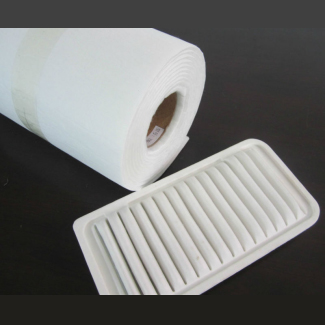Aug . 21, 2024 07:23 Back to list
Effective Air Purifiers with HEPA Filters for Cleaner Indoor Air Quality
The Importance of HEPA Filters in Air Purifiers
In today’s fast-paced and pollution-ridden world, the quest for cleaner indoor air has become more crucial than ever. Air purifiers have emerged as a popular solution for maintaining breathable and healthy environments, particularly for individuals with allergies, asthma, and other respiratory conditions. At the heart of many high-quality air purifiers lies the HEPA filter, renowned for its efficiency in trapping airborne particles and improving overall air quality.
What is a HEPA Filter?
HEPA stands for High-Efficiency Particulate Air. A HEPA filter is designed to capture at least 99.97% of particles that are 0.3 microns in diameter. This includes common allergens such as dust, pollen, pet dander, and even some bacteria and viruses. The effectiveness of HEPA filters is established by rigorous testing standards, ensuring that they can significantly reduce the presence of harmful pollutants in indoor air.
Why HEPA Filters are Essential
The significance of HEPA filters goes beyond mere cleanliness. They play a vital role in promoting health and well-being. According to various studies, poor air quality can exacerbate respiratory issues and contribute to the development of chronic conditions. By using an air purifier equipped with a HEPA filter, individuals can create a sanctuary free from irritants that compromise their health. This is particularly beneficial for vulnerable populations such as children, the elderly, and those with preexisting health conditions.
Furthermore, HEPA filters are not only effective at capturing allergens; they also aid in reducing the spread of airborne diseases. In settings such as hospitals or homes for the elderly, HEPA filters can help mitigate the risk of infections by filtering out pathogens that might otherwise circulate in the air.
Choosing the Right Air Purifier
air purifier hepa filter quotes

When considering the purchase of an air purifier, it is essential to look for models that specifically use true HEPA filters. Not all filters marketed as HEPA meet the stringent requirements set by the U.S. Department of Energy. Therefore, consumers should be vigilant in verifying product specifications to ensure they are investing in genuine HEPA technology.
In addition to HEPA filters, many air purifiers come equipped with additional filtration mechanisms, such as activated carbon filters, which are effective in removing odors and volatile organic compounds (VOCs). Combining these technologies not only enhances air quality but also improves the overall environment in homes and offices.
The Cost-Effectiveness of HEPA Filters
While the initial investment in a quality air purifier may seem steep, the long-term health benefits and potential savings on medical expenses due to improved air quality cannot be overlooked. People often underestimate the impact that clean air can have on their overall health and productivity. A fresher environment leads to fewer sick days, better concentration, and enhanced well-being.
Moreover, maintaining HEPA filters often involves periodic replacement, which is a manageable expense compared to the health costs associated with poor air quality. Many modern air purifiers also provide alerts for filter replacement, ensuring users maintain optimal performance.
Conclusion
Air purifiers with HEPA filters are more than a luxury; they are a necessity in ensuring a safe and healthy living environment. As we continue to face rising pollution levels and increasing health concerns related to air quality, investing in an effective air purifier is a proactive step towards better health. By understanding the importance of HEPA filters and their role in air purification, individuals can take control of their indoor air quality and breathe easier. Ultimately, clearer air leads to clearer minds and healthier lives.
-
Premium Active Carbon Air Filter for Air Purifiers - Odor Removal
NewsAug.21,2025
-
Premium Acrylic-Resin Air Filter Paper in Roll | High Efficiency
NewsAug.19,2025
-
PLAB-6 A B Two Compounds Filter End Cap Gluing Machine-Hebei Filter Man|Precision Gluing,Automated Production
NewsAug.18,2025
-
PLAB-6 A B Two Compounds Filter End Cap Gluing Machine - Hebei Filter Man Automotive Parts Trading Co., Ltd | Adjustable Gluing Parameters, Automated Precision
NewsAug.18,2025
-
PLAB-6 A/B Two Compounds Filter End Cap Gluing Machine-Hebei Filter Man|Precision Engineering&Efficiency
NewsAug.18,2025
-
Active Carbon Air Filter for Purifier: Superior Air Quality & Odor Removal
NewsAug.18,2025
